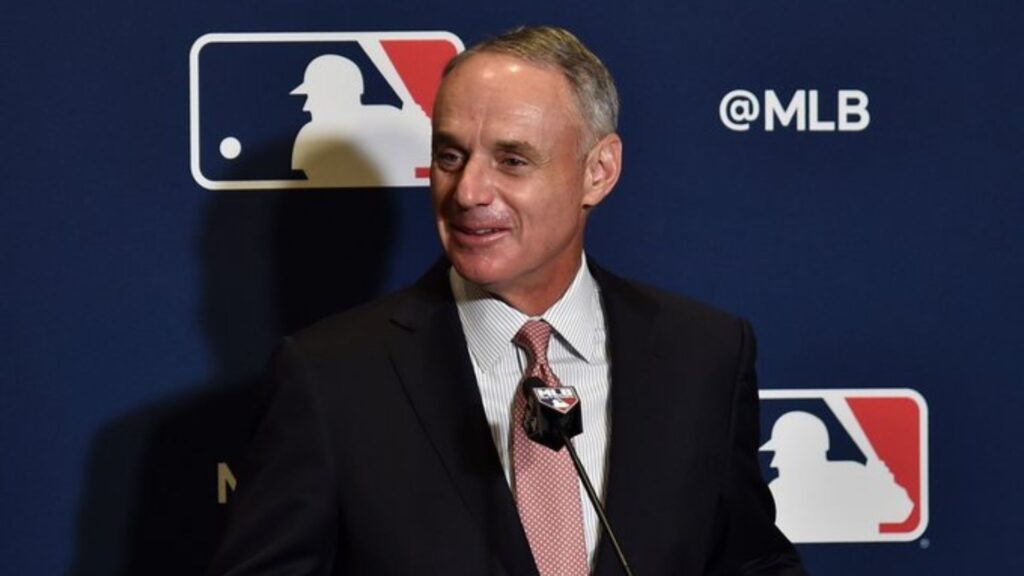In a move that rocked the baseball world, Rob Manfred, the current MLB commissioner, dropped a bombshell during a press conference on Thursday: he declared that his ongoing term would be his swan song. With his tenure set to conclude in January 2029, the 65-year-old commissioner unveiled his plans for a graceful exit, catching both fans and insiders off guard.
Manfred’s reign since 2014, following in the footsteps of the legendary Bud Selig, has been a rollercoaster ride through the highs and lows of America’s favorite pastime. While his rule changes aimed at jazzing up the pace of play and expanding the postseason have sparked spirited debates among fans, it was his handling of controversies like the Astros’ sign-stealing scandal that left a bitter taste in many mouths.
Indeed, Manfred’s tenure has been marred by contentious moments, from the tampering with baseball composition to the infamous “piece of metal” comment regarding the World Series trophy. Yet, despite the backlash from fans, Manfred has found favor with the club owners, whose unwavering support has been the bedrock of his leadership.
The landscape of baseball, much like the broader sports industry, has been evolving rapidly, with the shift from cable TV to online streaming becoming increasingly pronounced. Although this transition hasn’t been without its hiccups, lucrative deals with tech giants like Apple and traditional broadcasters such as Fox and ESPN have kept the league in the green.
Amidst the challenges, Manfred’s stewardship has overseen record-breaking revenue, signaling a thriving business under his watch. From rising attendance figures to soaring franchise valuations, Manfred’s legacy is a testament to the financial prosperity of Major League Baseball.
As Manfred prepares to bid adieu, the league faces a future marked by uncertainty. The relocation saga of the Athletics to Las Vegas continues to unfold, while the fate of the Diamond Sports Group hangs in the balance. Despite the impending transition, Manfred has his sights set on expanding the league to 32 teams, a bold vision that he hopes to kickstart before his departure.
While opinions on Manfred’s legacy vary, there’s no denying the indelible mark he’s left on the sport. From die-hard fans to seasoned players and astute owners, everyone in the baseball fraternity will have their own take on Manfred’s tenure. Yet, as the final innings of his commissionership approach, one thing remains clear: the end of an era looms large, with the search for Manfred’s successor already on the horizon.
Reflecting on his journey from chief operating officer to the helm of MLB, Manfred’s rise to power was no easy feat. Battling it out with the likes of Tom Werner in a nail-biting showdown for the commissioner’s seat, Manfred’s ascent to the top was a testament to his resilience and acumen in navigating the intricate politics of the baseball world.
As the countdown to Manfred’s exit begins, the league faces a pivotal moment in its history. With five years to chart a course for the future, the search for a new commissioner will undoubtedly be a hot topic of discussion. Yet, as Manfred prepares to pass the baton, his legacy as a transformative figure in the annals of baseball history is already etched in stone.






